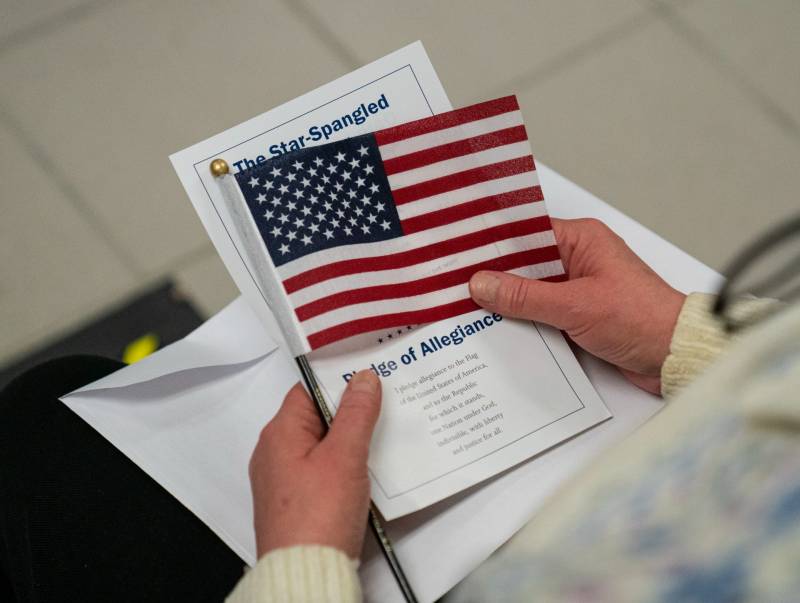A rare legal pathway has opened up for as many as half a million undocumented immigrants in the Bay Area and across the country that could lead to eventual U.S. citizenship. But in an election year when immigration is a polarizing issue, it’s also raising questions for those who stand to benefit.
The Biden Administration began accepting Monday applications for a program that would enable long-term unauthorized immigrants married to U.S. citizens — and 50,000 undocumented stepchildren of citizens — to become permanent legal residents.
Immigrant legal aid groups across California are rolling out information sessions on how to apply, even as they rush to read the program’s fine print (PDF) — which won’t be officially published by the federal government until Tuesday, Aug. 20.
While some families said they were eager to take advantage of the long-sought opportunity to secure the full rights of citizenship, others were cautious about applying. With former President Donald Trump condemning undocumented immigrants as “poisoning the blood of our country,” they fear they’d be especially vulnerable if he makes good on his vow of mass deportations.
Fear of deportation if Trump wins
Janet Reyes, a dental assistant at an Oakland high school, is a U.S.-born citizen. She and her husband, Marco, have two kids, ages 8 and 15, who were also born here. But Marco, a construction worker, is undocumented, having come illegally from Mexico when he was a young man. KQED is not using his last name because of his concerns about deportation.

